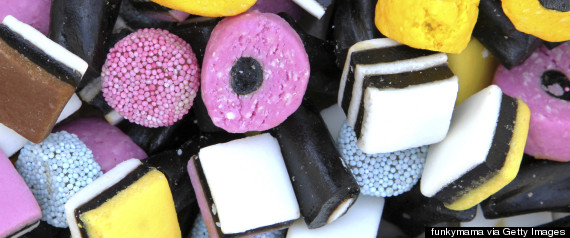If you’re studying this novel as a member of a readers’ group, here are a few resources and questions to start the ball rolling. Note: questions do contain spoilers, so be sure to read the book first if you care about that kind of thing….
St Oswald’s is an independent school. Find out more about the private and independent school system here.
False and recovered memory is a strong theme in this book. Find out more about memory distortion and false memory syndrome here.
The author taught for fifteen years at a boys’ independent school in Yorkshire. Read about the school here.
Straitley is famously fond of Licorice Allsorts. Join him here.
Or try making these quick and easy Licorice Allsorts slices…
Questions for group discussion:
- Like GENTLEMEN AND PLAYERS, this book raises issues of gender and sexuality. How does the author do this? Why do you think the author chose to highlight these issues?
- Why do you think Straitley disliked Johnny Harrington so much from the start?
- Straitley’s relationship with his Brodie Boys is very important to him. Why?
- Harry Clarke is a charismatic teacher, but he is also naive, even inappropriate in some ways. In what way do you think he could be said to be the architect of his own downfall?
- Ziggy isn’t a typical villain. In what ways could he also be seen as a victim? And of whom?
- Where do you think the line must be drawn in the relationship between a student and a teacher? Does Straitley cross any of these lines?
- Does Harry Clarke’s homosexuality make him more likely to fall foul of the rules? Do you think this story would have played in the same way at a mixed school? A state school? With a female teacher?
- St Oswald’s is a Chucrh of England school. Does the Chaplain’s involvement in the Harry Clarke affair prove helpful, or does it make things worse? Why do you think this is?
- The New Head represents everything Straitley despises. Why? What is it about Harrington that makes him feel this way? Is he justified in this?
- Straitley and Dr Devine are united in their dislike of the New Head. To what extent is this a story about the conflict between the old and the new? The clash of generations? The inevitable march of progress?
- Is Straitley fighting a losing battle in his attempt to preserve the St Oswald’s he loves? Is it really worth preserving?
- Straitley does not report his friend Eric, even when he becomes convinced that Eric is a paedophile. How hard do you think this decision was, and why did he make it?
- What is Winter’s role in this story? Why do you think the author chose to make him a significant player?
- Straitley is a deeply moral person, and yet is not above committing a crime (the theft of the Honours’ Boards) in the service of St Oswald’s. Is this his fatal flaw?
- Harry Clarke uses some unconventional methods to interest boys in his subject. In what way does this contribute to what happens?
- Why do you think the author chose the title she did? What meaning do you take from it?
- To what extent is this book a story about class, money and privilege?
- As with GENTLEMEN AND PLAYERS, the identity of one of the narrators is kept deliberately ambiguous. Why do you think the author chose to do this? What does it add to the narrative, and how does it contribute to the themes of identity and perception?
- The theme of memory – both real and false – is a strong one in this novel. In what way do you think memories can be altered?
- Ms Buckfast, the Deputy, turns out to be a far more dangerous and manipulative character than the Head. In what way could she be said to have used her relationship with him (and her gender) in her rise to power?

